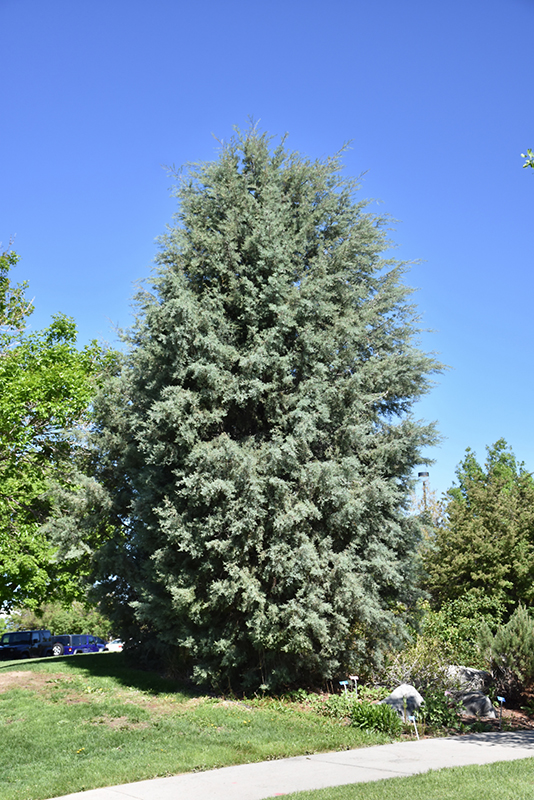Height: 35 feet
Spread: 15 feet
Sunlight:
![]()
Hardiness Zone: 6b
Other Names: Smooth Cypress, syn. Cupressus glabra
Description:
A somewhat columnar and upright accent tree, foliage is wonderfully fine and blue-green; bark continually flakes away to reveal attractive cherry red inner bark; use as a solitary accent in the yard or a large garden, very hard to miss all season long
Ornamental Features
Arizona Cypress is primarily valued in the landscape for its rigidly columnar form. It has attractive bluish-green evergreen foliage. The fragrant scale-like sprays of foliage are highly ornamental and remain bluish-green throughout the winter.
Landscape Attributes
Arizona Cypress is a dense evergreen tree with a strong central leader and a narrowly upright and columnar growth habit. It lends an extremely fine and delicate texture to the landscape composition which can make it a great accent feature on this basis alone.
This is a relatively low maintenance tree, and should not require much pruning, except when necessary, such as to remove dieback. It has no significant negative characteristics.
Arizona Cypress is recommended for the following landscape applications;
- Accent
- Vertical Accent
- Hedges/Screening
- Windbreaks and Shelterbelts
Planting & Growing
Arizona Cypress will grow to be about 35 feet tall at maturity, with a spread of 15 feet. It has a low canopy with a typical clearance of 1 foot from the ground, and should not be planted underneath power lines. It grows at a fast rate, and under ideal conditions can be expected to live for 60 years or more.
This tree should only be grown in full sunlight. It prefers dry to average moisture levels with very well-drained soil, and will often die in standing water. It is considered to be drought-tolerant, and thus makes an ideal choice for xeriscaping or the moisture-conserving landscape. It is not particular as to soil pH, but grows best in sandy soils. It is somewhat tolerant of urban pollution. This species is native to parts of North America.



